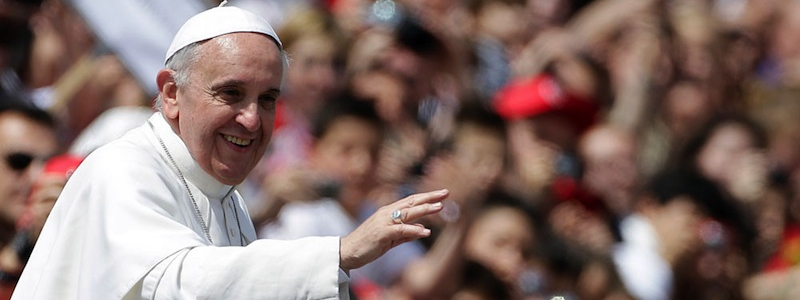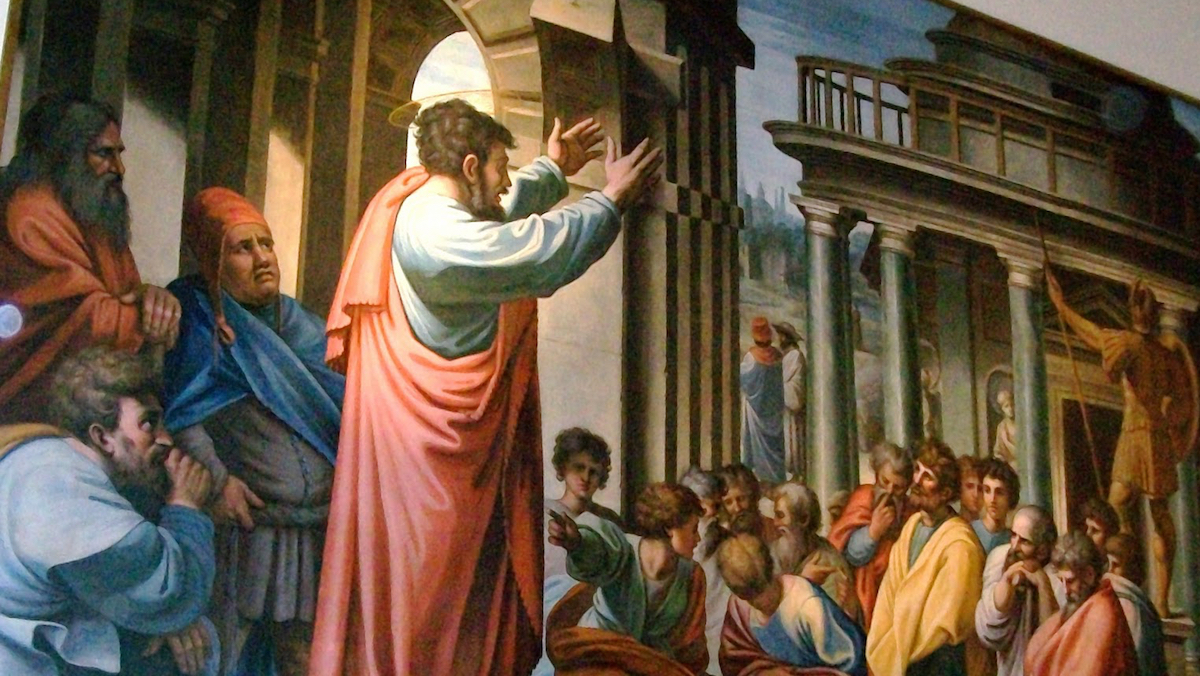
The word “hate” is a powerful word so in sharing my thoughts with you on this 23rd Sunday in Ordinary Time I want to first note that in the language Jesus spoke back then the word “hate” was a Semitic expression that we should not take literally.
We should think of it as telling us that loving God is more important than anything else. Jesus is asking for first place in our hearts, he’s not asking us to abandon our families. After all in the society in which Jesus lived people’s whole lives centered on their families. Our lives should be also. Jesus used extreme language so that people would not forget what He is asking, namely our wholehearted and uncompromising commitment to follow in His way, live in His truth, and share life with Him.
We all have obligations, responsibilities, and commitments, especially to our families, and only twenty-four hours in any one day to meet our responsibilities. Time is precious. Today’s first reading notes that in what we just heard:
Who can know God’s counsel, or who can conceive what the Lord intends? For the deliberations of mortals are timid and unsure are our plans. For the corruptible body burdens the soul and the earthen shelter weighs down on the mind that has many concerns.
Nevertheless we need to ask ourselves where our hearts really are and how much of our inner selves we are giving to God. Just where IS God in our lives? Just how important is God in our lives?
Today’s Gospel account of St. Luke (14:25-33) is noteworthy for its extremes. On the one hand, it sets forth the fundamental and uncompromising demands that Jesus makes on those who would be His followers and, at the same time, St. Luke emphasizes the gentleness and compassion of Jesus for the sinful and the weak. Let me suggest to you that those commitments are not contradictory.
In this Gospel we find Jesus surrounded by a huge crowd of people. They are full of enthusiasm and expectation… but Jesus very quickly pulls them up short. If anyone comes after me, Jesus says, and is not prepared to hate father and mother, wife and children, brothers and sisters and indeed his very own self, he cannot be my disciple. He is not asking us to abandon our families. He is asking us to put love of God in first place. We should remember that if we love God we will love others, and love them with His love. To abandon our families or give them the best of our love and care would be highly irresponsible and at the same time a violation of God’s commandment of universal love. But it is also clear that, for those who want to be part of Jesus’ work, they have to give themselves to it wholeheartedly. And, where there is a choice between the ways of this world and the clear call of the Gospel, they have to reject the allurements of this world. But that takes discipline and planning. It doesn’t “just happen.”
So Jesus gives us two examples:
One is about a man who had plans to build a tower. Before he started, he made sure that he had all the necessary resources. Otherwise he might find that, after laying the foundations, he could not finish the work and he would become the laughing stock of others.
In the second example Jesus speaks of a king with 10,000 soldiers who finds he is going to war with another king who has 20,000. If he thinks there is no way he can win, he will send an embassy to negotiate the best peace terms he can get.
Similarly, says Jesus, no one can be a disciple of His who is not ready to let go of everything he thinks to be of such importance that he sets God aside and gives God little time and attention.
Love has its demands. And following in Jesus’ way has its demands. How many in the crowd who were listening to Jesus were ready for that? How many of us in our day are ready for that? Am I ready? And what are the things I am clinging to? What are the things I cannot let go of? And why? To be a disciple of Jesus means being absolutely free. To be free to love Jesus and walk in His ways requires that we say “no” to a whole lot of other things. I am reminded of St. Francis of Assisi leaving his family and taking off all his rich and fancy clothes only to clothe himself in a beggar’s rags. He was then filled with a tremendous sense of joy and freedom. Do I want to be a disciple of Jesus? To what extent? Am I ready to pay the price he asks?
Many voices in our surrounding world attempt to tell us what is important and what is not. Many of those voices tell us to set God aside or, even worse, abandon believing in God. Each one of those many voices, all of them competing between each other and trying to dominate, present what they claim to be of the greatest importance. We need to exercise critical judgment. Are they offering mere pleasure? Or are they offering us lasting happiness?
A good education gives us a lot of facts and information. It should also give us the skill to make critical judgments, to differentiate between what is merely superficial and what is of substance. That is what today’s Gospel account is all about. It is challenging us to see things in context and to place things in proper perspective.
I’m sure we all understand that God matters and that life with Him forever in heaven is our goal. It’s not whether we believe that, it’s how we believe that, how we make it a part of our lives. Just how are we following Jesus in our lives? And so the Book of Wisdom advises us: For the deliberations of mortals are timid and unsure are our plans. For the corruptible body burdens the soul and the earthen shelter weighs down on the mind that has many concerns. If we put the way and the truth and the life of Jesus as first in our concerns, we will find a life infinitely beyond mere pleasure, we will find everlasting happiness.
Being close to Jesus will give us the power to deal with whatever life sends our way.








